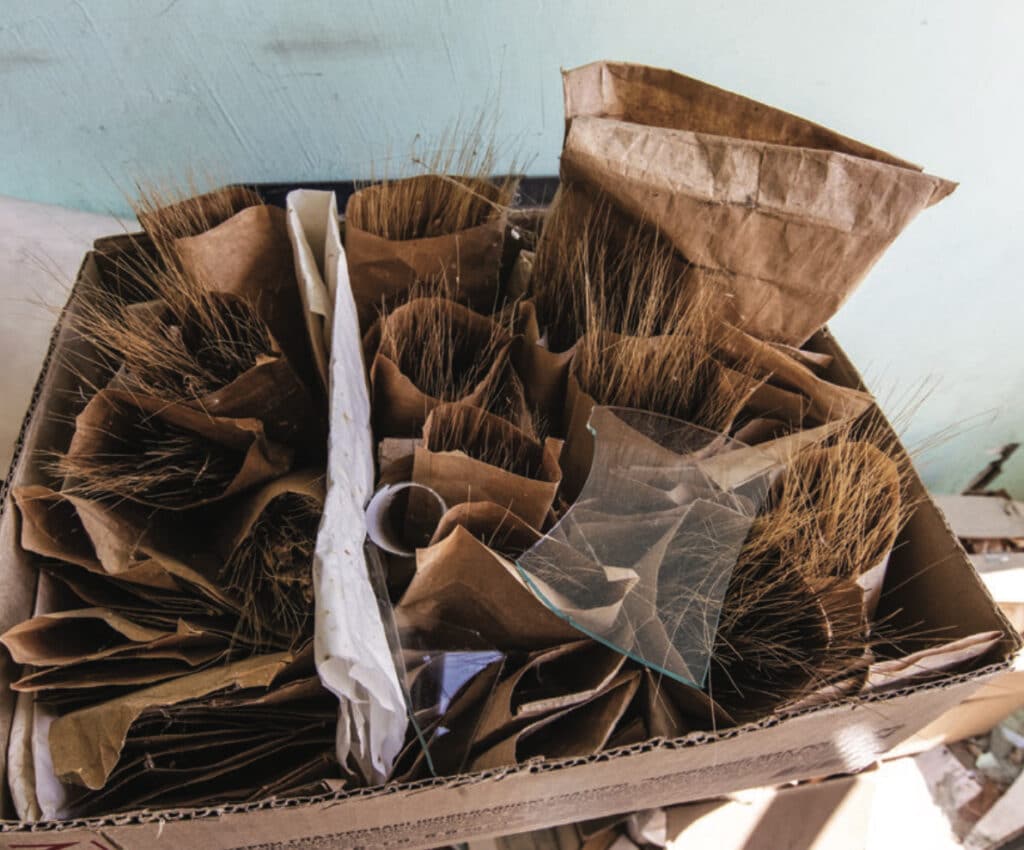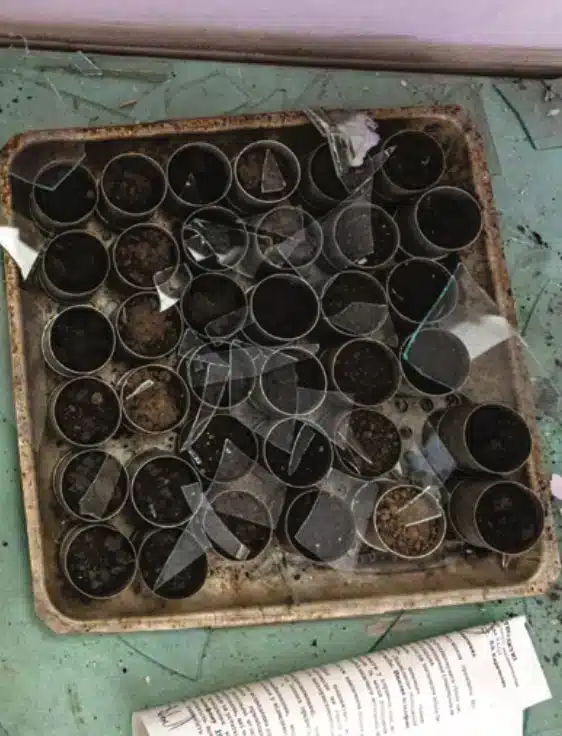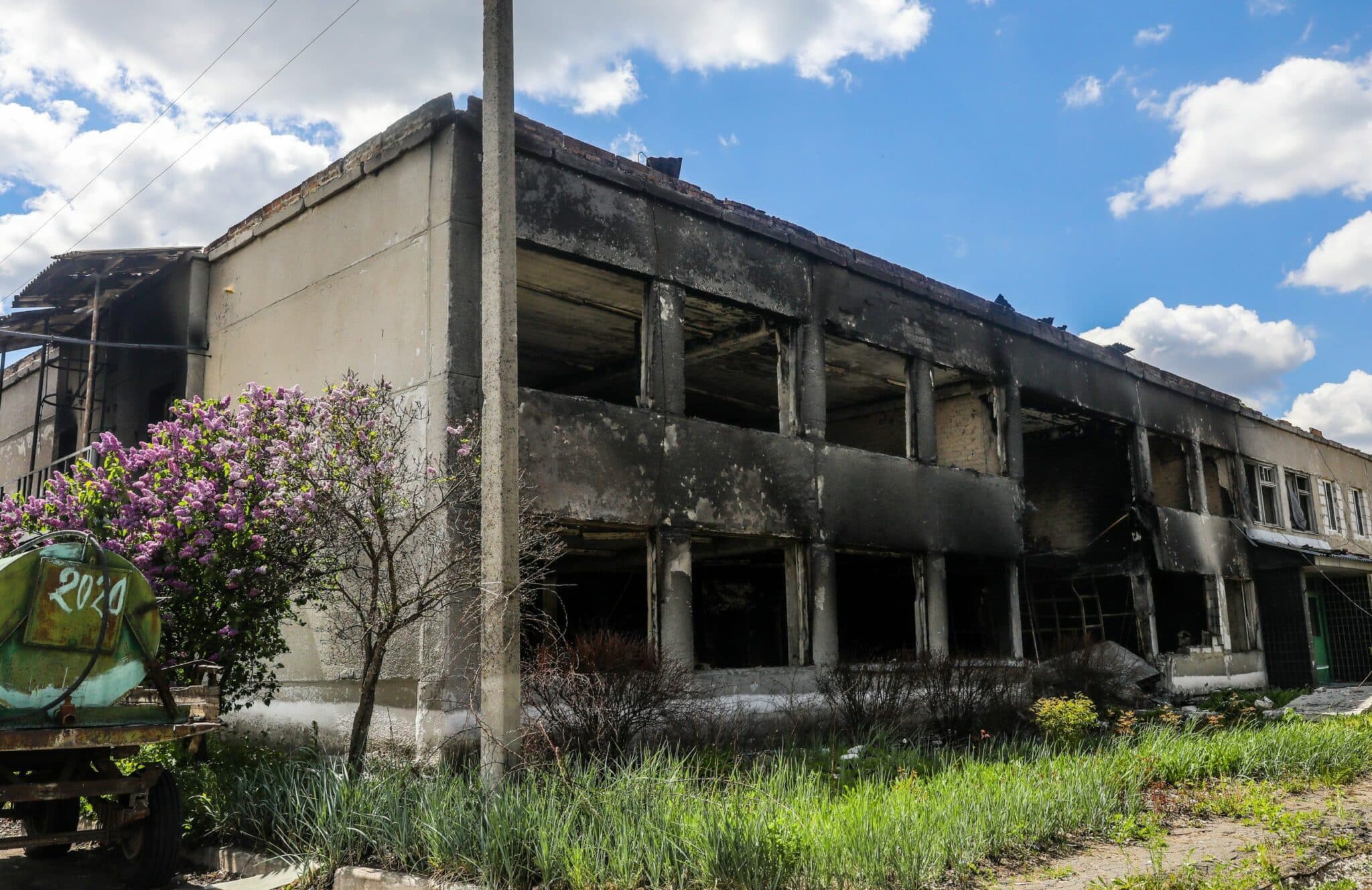The destruction of the genetic potential of the agricultural sector
WHY IT MATTERS: In mid-May 2022, the employees of the Yuriev Plant Production Institute informed that Russian troops had purposefully shot at one of the facilities where the genetic samples of various plants were stored.

Spring crops were about to be prepared for sowing. As a result of the shelling, the sample room burned down completely. However, as it turned out later, the employees managed to make duplicates of these samples. Instead, the winter crops are in danger. To process them there is not enough fuel, crop protection and fertilizers. But the greatest danger are the mined fields, where those crops are sown. In her article below, Siuzana Grygorenko, Executive Director of Seed Association of Ukraine, explains the importance of genebanks, the danger of their destruction and how it impacts the global food security in general.

What Are Genebanks?
Genebanks operate in a number of countries and within scientific institutions. They are created in order to have an opportunity to breed new sustainable plant varieties from these samples in the future. And without primary (so-called original) seeds it would be rather difficult to do that.
Nowadays, there are about 1,500 genebanks in the world. One of them is located in Kharkiv at the Yuriev Plant Production Institute. The genebank houses over 160,000 plant varieties and hybrids, collected from all over the world. With several breeding stations, the Institute employees not only collect and preserve, but also work on developing various varieties and hybrids of sunflower, cereals, and other crops.
Collecting the Samples
The employees asked foreign breeding companies, companies present in Ukraine, Ukrainian breeders and other countries to provide them with samples of varieties and hybrids bred in them. In this way, the so-called selection fund was formed and as mentioned above, it numbered about 160,000 samples.
Importance of Genebanks
First, breeding is an extremely long and time-consuming process. It takes 5-7 years to develop a new variety and to test it under different environmental conditions. And then another 2-3 years to commercialize the variety. But conducting scientific investigations with crossbreeding and various combinations and their conservation is a whole new level.

Second, the employee’s expertise must also be taken into account. The number of workers engaged in this activity is actually limited. Meaning that the work is sophisticated, demanding field knowledge and great experience
Third, the selection and collection of various materials from companies, and from all over the world, is an extremely important process for business and science. Therefore, such genebanks and companies share their materials, as it takes titanic efforts to create a new variety or hybrid. They do not appear on their own. Without renewal, varieties or hybrids will not be able to compete with new varieties in the market, will not be able to withstand new weather or climate challenges, and will not be able to grow in ever-changing soils and environments.
Ultimately, it also impacts the food security. After all, such research provides insight into what seeds can grow, for example, in Kazakhstan on in South Africa. Thus, Ukrainian breeders can develop the very varieties, which would grow well in those countries. It will not be possible without a scientific base and understanding of the characteristics of the germplasm.
Impact on the Entire Chain
Another very important point is a chain reaction in all sectors of the economy. If breeding companies do not receive or have problems with seed samples, they will not be able to sow seeds. Such a delay, even partial, is very extreme for seed sector. In such cases it would be very hard to recover, it’s almost equivalent to a stop. That’s why companies (Ukrainian and their parent companies) tend to keep going, so they would not stop completely. Thus, if a problem with breeding appears, seed companies will immediately have troubles, which, in turn, will lead to the reduction of sown areas and lower yields.
Nowadays, all sectors of the economy are interconnected. Even foreigners are starting to feel it. That’s why, the destruction of genebanks and the Russians’ illegal moving of grains from Ukraine, endangers not only Ukrainian agricultural companies, but also food security on a global scale. And this is another strong argument why Western countries should consolidate their aid to Ukraine.
View the European Seed photo feature of the Yuriev Plant Production Institute here.
Read More from the September Issue:
Promoting Science for Sustainable Agriculture
Free Seeds, A Present From Hell













